Safest Places in Germany for Solo Female Travelers
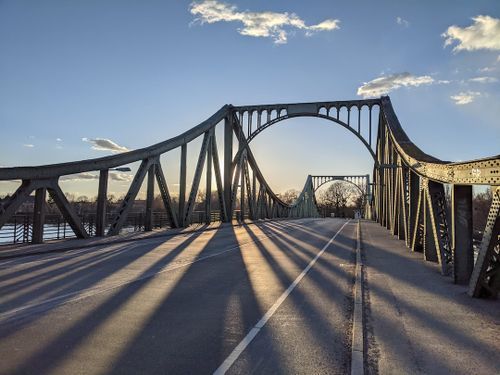
1, Potsdam
Located just southwest of Berlin, Potsdam, Germany, is a city known for its breathtaking parks and palaces. Perhaps the most famous hallmark is Sanssouci Park, filled with gardens, temples, and grand palaces, including the historic Sanssouci Palace which was the summer residence of Frederick the Great. The cityscape is adorned with the impressive dome of the St. Nikolai Church and the intricate red brick design of the Nauener Gate. Potsdam is also home to Babelsberg Film Studio, the oldest large-scale film studio in the world, making the city a significant hub in the international film industry. This charming city provides a perfect blend of art, culture, and history for every visitor.
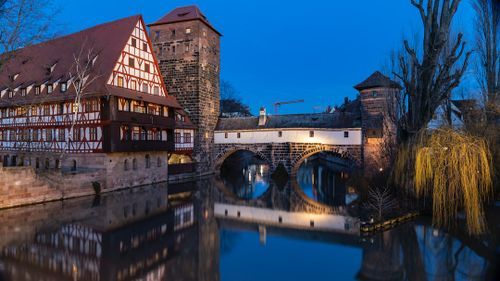
2, Nuremberg
Nuremberg, nestled in the federal state of Bavaria in southern Germany, is a city steeped in history and vibrant tradition. It is world-renowned for its pivotal role in the history of the Holy Roman Empire, being a powerhouse of the Industrial Revolution, and sadly, the staging of Nazi Party rallies and the following Nuremberg trials post World War II. Today, the charming Old Town treats its visitors to medieval architecture, including the towering Nuremberg Castle, the enchanting Church of Our Lady, and the iconic Hauptmarkt, a bustling square that hosts the famous Nuremberg Christmas Market. Nuremberg's rich past blends with its thriving modernity, as it is also known for its excellent museums, vibrant arts scene, and delicious Franconian cuisine.
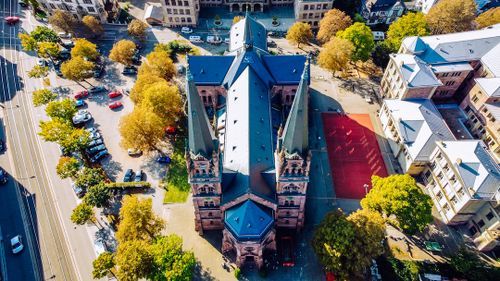
3, Freiburg im Breisgau
Freiburg im Breisgau, nestled in the heart of the Black Forest region of Germany's southwestern corner, is a gem waiting to be explored. Known as a vibrant university city, it's characterized by beautiful medieval architecture, enchanting cobblestone streets, and photogenic half-timbered houses. Its iconic 13th-century gothic cathedral, Freiburg Münster, boasts a unique tower with striking views, while Schlossberg Hill offers a panoramic view of the whole city. The city's commitment to sustainable living is evident in the Bächle, small water-filled runnels that run throughout old town, and the Vauban, an eco-friendly district. With vineyards surrounding the city and its proximity to the Black Forest, Freiburg melds urban charm with genuine natural beauty.
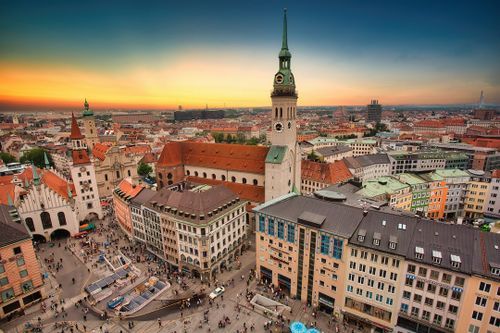
4, Munich
Munich, a cosmopolitan city located in southern Germany, is the capital of Bavaria and known as the heart of German culture. Charmingly resting within sight of the snow-capped Alps, Munich is globally renowned for its classic blend of the traditional and the modern. The city is celebrated for its age-old traditions, expansive beer gardens, and enchanting music, particularly resonating during Oktoberfest, the world's largest beer festival. Home to architectural marvels like the iconic Nymphenburg Palace and Frauenkirche, Munich also houses world-class museums such as the Deutsches Museum and Pinakotheken. Both the nature enthusiast and the sports fanatic can find delight in the English Garden and the Olympiapark, testifying to Munich's diverse appeal.
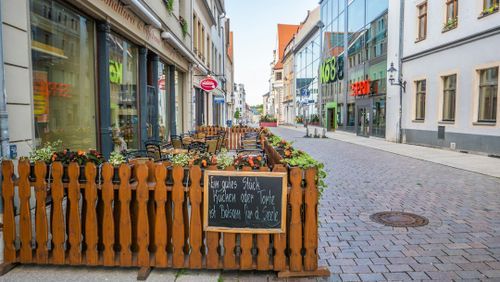
5, Freiberg
Situated in the heart of Saxony, Germany, Freiberg is a charming city renowned for its rich history and breathtaking architecture. Most notable is its grandiose late Gothic cathedral, known for the Golden Gate and the unique Silbermann organs, a marvel for history and music enthusiasts alike. Freiberg is also globally recognized for its technical university, Bergakademie Freiberg, one of the oldest of its kind dedicated to mining and metallurgy. The city is also celebrated for its extensive mining history, with the Terra Mineralia, one of the world’s largest collections of minerals in the Freudenstein Castle, serving as a testament to its past. Fascinating, filled with allure and offering an exquisite blend of education, tradition, and gorgeous scenery, Freiberg promises a splendid expedition in Germany's cultural heartland.

6, Tegernsee
Tegernsee is a captivating small town nestled in the heart of Bavaria, southern Germany that offers scenic and breathtaking views of the surrounding Alpine peaks. The town is popularly recognized for the beautiful Tegernsee Lake, a haven for nature lovers and adventure seekers, with activities encompassing boating, hiking, and cycling. Moreover, it is home to the Tegernsee Abbey, a historical monument that showcases brilliant baroque architecture. In addition to the rich cultural heritage, it's highly reputed for its local beer brewed in the Benedictine monastery, making it an absolute must-visit for beer enthusiasts. From soaking in the natural beauty to indulging in historical explorations and culinary delights, Tegernsee provides an amalgamation of experiences that cater to a broad array of preferences.
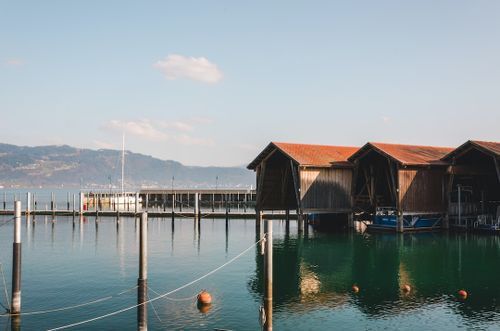
7, Lindau
Lindau, a breathtakingly beautiful island town, rests in the southeastern part of Germany, located on the eastern side of Lake Constance, Bodensee. It offers a unique blend of history, architecture, and natural beauty, making it a notable tourist destination. Famous for its lighthouse and romantic harbor entrance adorned with a Bavarian lion statue, Lindau provides picturesque views that enchant visitors. Its charming medieval streets are lined with half-timbered buildings and the St. Peter's church, known for its painted ceilings, adds to the town's historic charm. Moreover, Lindau's wonderfully sunny climate gives the opportunity to indulge in various outdoor activities, such as sailing and cycling around the lake, making it a perfect holiday destination.
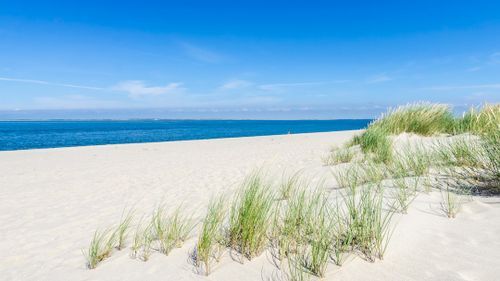
8, Sylt
Located off the northernmost tip of Germany, Sylt is a radiant gem in the North Sea, marked by its distinctive shape of a narrow, sandy garnish to the German coast. It is predominantly known for its unique Frisian-style thatched roof houses, miles of immaculate sandy beaches, and high-end resorts attracting the rich and famous. The island provides a blend of serene natural beauty, from the undulating dunes of the Wadden Sea, a UNESCO World Heritage Site, to the Wattenmeer protected area, a paradise for bird watchers. Renowned for its gourmet dining scene, Sylt serves up delicious North Sea seafood, while its unique chill-out beach bistros offer unbeatable sunset views. Visitors to this wind-swept island can also engage in outdoor activities such as surfing, sailing, and horse-riding, or enjoy wellness retreats for a refreshing getaway.
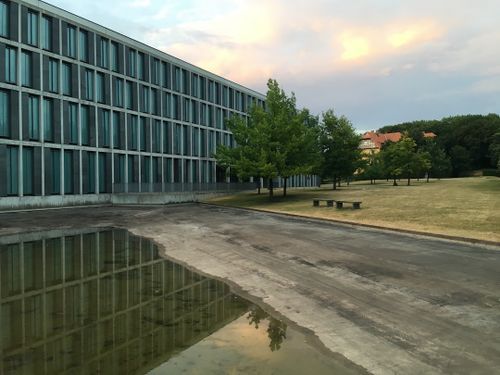
9, Erfurt
Erfurt, steeped in alluring charm and historical importance, is tucked away in the heartland of Germany's Thuringia region. Known as the main city nearest to the geographical center of the country, Erfurt brims with pristine examples of German history and culture. Renowned for its impeccably well-preserved Medieval architecture, the city lays claim to the awe-inspiring Erfurt Cathedral and St. Severus Church, exemplifying its rich religious heritage. The Krämerbrücke (Merchants' bridge), Europe's longest bridge completely covered with residences, lends an otherworldly appeal to the cityscape. Erfurt is also recognized for its vibrant gardens, especially the baroque-style Egapark, enhancing the city's scenic charm. Truly, a visit to Erfurt promises a delightful immersion in Germany's historic eloquence and natural beauty.
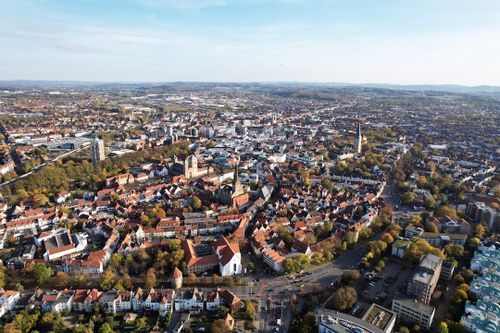
10, Osnabruck
Located in the heart of Lower Saxony, Germany, Osnabrück is a city rich in history and culture. Known as the 'City of Peace' for the Treaty of Westphalia that ended the Thirty Years' War in the 17th century, this charming location offers a blend of traditional architecture and modern facilities. Visitors can explore the medieval town center with its half-timbered houses, majestic St Peter's Cathedral and the stunning Osnabrück Castle, now a university. The city also boasts of being the birthplace of celebrated novelist Erich Maria Remarque and presents a dedicated museum chronicling his life and work. With ample green spaces, including the lush Botanical Garden of Osnabrück, the city is known for being cyclist-friendly and has a vibrant nightlife scene, offering a truly well-rounded experience.
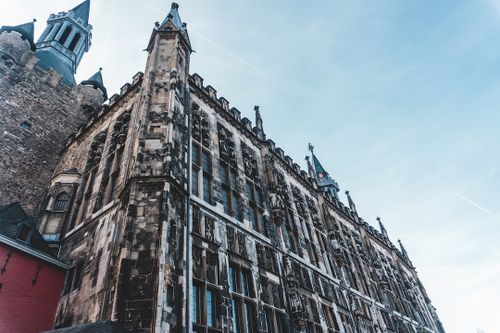
11, Aachen
Aachen, the westernmost city in Germany, is a dynamic hub nestled at the borders of Belgium and the Netherlands. The city portrays a beautiful blend of history and science, featuring a rich ecclesiastical and regal past while also thriving as a modern scientific center. Known for its globally recognized technical university, RWTH Aachen, the city attracts students worldwide making it a youthful and energetic town. Aachen's premier attraction, the Aachen Cathedral, is a UNESCO World Heritage site where the German Kings were crowned and is also the final resting place of Charlemagne. Besides, the city is widely acclaimed for the production of Printen, a type of Lebkuchen (German gingerbread), and its healing hot springs, making Aachen a compelling travel destination with a touch of historical grandeur, delicious cuisine, and comforting wellness.
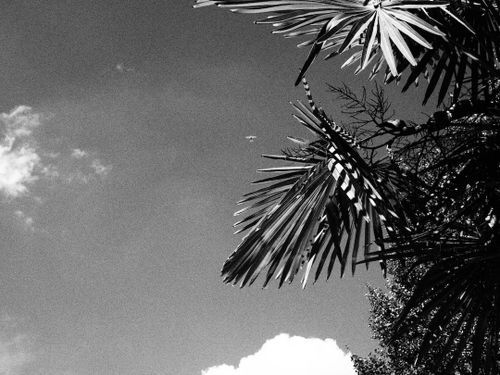
12, Ludwigsburg
Located in the heart of Baden-Württemberg, Germany, Ludwigsburg is a vibrant city renowned for its rich history and diverse cultural offerings. Known primarily for the opulent Ludwigsburg Residential Palace, one of the largest Baroque edifices in the country, the city draws visitors with its splendid architecture and manicured gardens, dating back to the 18th century. Every autumn, Ludwigsburg comes alive with the famous Ludwigsburg Pumpkin Festival, the largest pumpkin festival in the world, attracting travelers from around the globe to marvel at colossal pumpkin sculptures and savor a wide array of pumpkin dishes. From quaint cobbled streets to the unique Fairy Tale Gardens and elegantly hosted Annual Horse Market, there are numerous treasures that await discovery in Ludwigsburg, making it a must-visit destination for the discerning traveler in Germany.
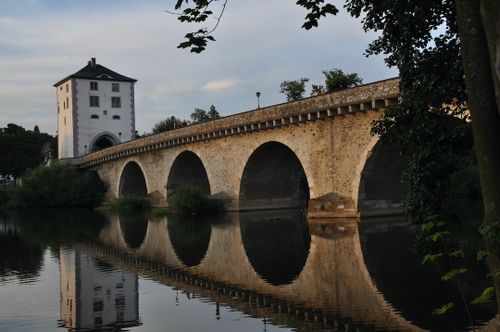
13, Limburg an der Lahn
Limburg an der Lahn is a charming mid-sized city located in the federal state of Hesse, western Germany -- graced by the scenic Lahn River. Recognized widely for its well-preserved medieval architecture, this picturesque locale boasts the striking St. George's Cathedral, a remarkable late Romanesque architectural marvel which dominantly perches atop a rocky hill, visible from many points in the city. Limburg's quaint Old Town, teeming with multi-colored half-timbered houses dating back to the 13th century, is another captivating sight for history and architecture enthusiasts. Additionally, the city’s pleasant riverside setting and surrounding nature offer opportunities for assorted outdoor activities, including hiking, biking, and leisurely strolls.
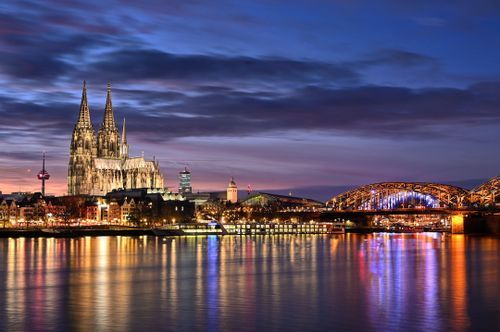
14, Cologne
Situated on the Rhine River in western Germany, the city of Cologne beckons with its rich history and vibrant culture. Unmissable is its towering centerpiece: the iconic Cologne Cathedral, a stunning Gothic masterpiece that tells a grand tale of architectural determination and prowess. Old Town, with its ancient buildings and narrow, winding streets, offers a quaint charm filled with inviting traditional breweries and taverns where you can sample the city’s famous local beer, Kölsch. Known for its vibrant art scene, Cologne houses the Museum Ludwig which boasts an impressive collection of modern art, juxtaposing the city's antiquity with commendable contemporary aesthetics. Along with the world-renowned trade fairs and annual spectacles such as the exhilarating Carnival, Cologne truly is a versatile gem on Germany's cultural landscape.
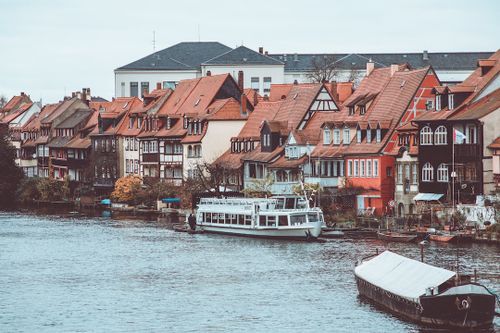
15, Bamberg
Bamberg, Germany is a picturesque town in the region of Upper Franconia, Northern Bavaria. Recognized as a UNESCO World Heritage Site, this medieval city captivates with its unique Old Town offering myriad architectural marvels ranging from different eras — from Romanesque to Gothic to Baroque. Bamberg is renowned for its well-preserved old structure - the Bamberg Cathedral, charming half-timbered houses, and the Old Town Hall, intriguingly built in the middle of the Regnitz river. The city is also famed for its exceptional Rauchbier, a smoked beer, reflecting Bamberg's deep brewing tradition. Wandering through the winding alleyways and serene river pathways, one can experience Bamberg's enchanting blend of natural beauty, culture, and history.








